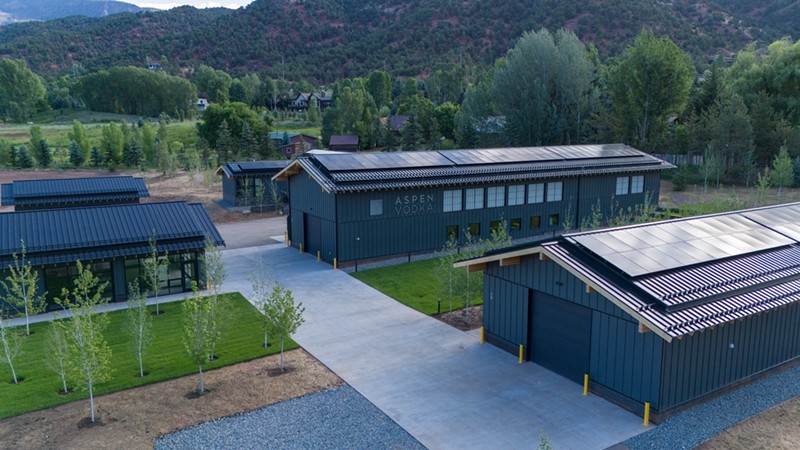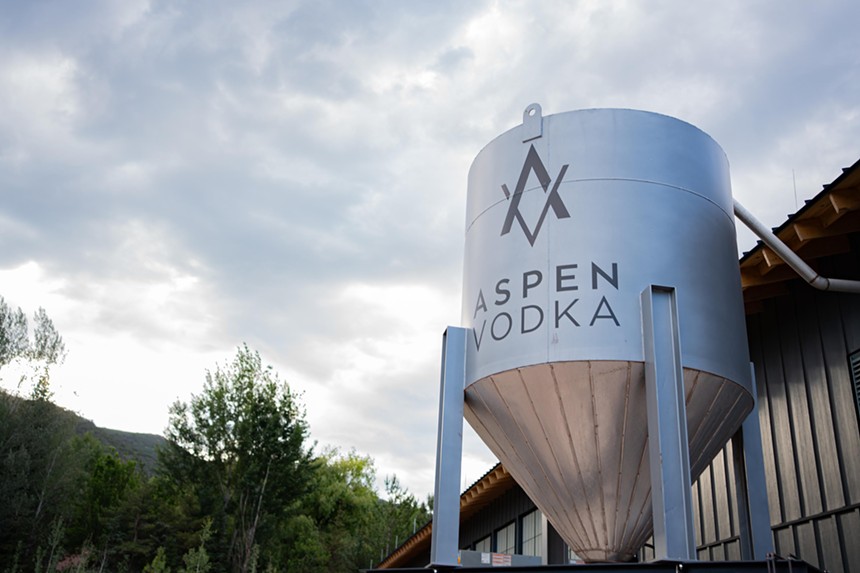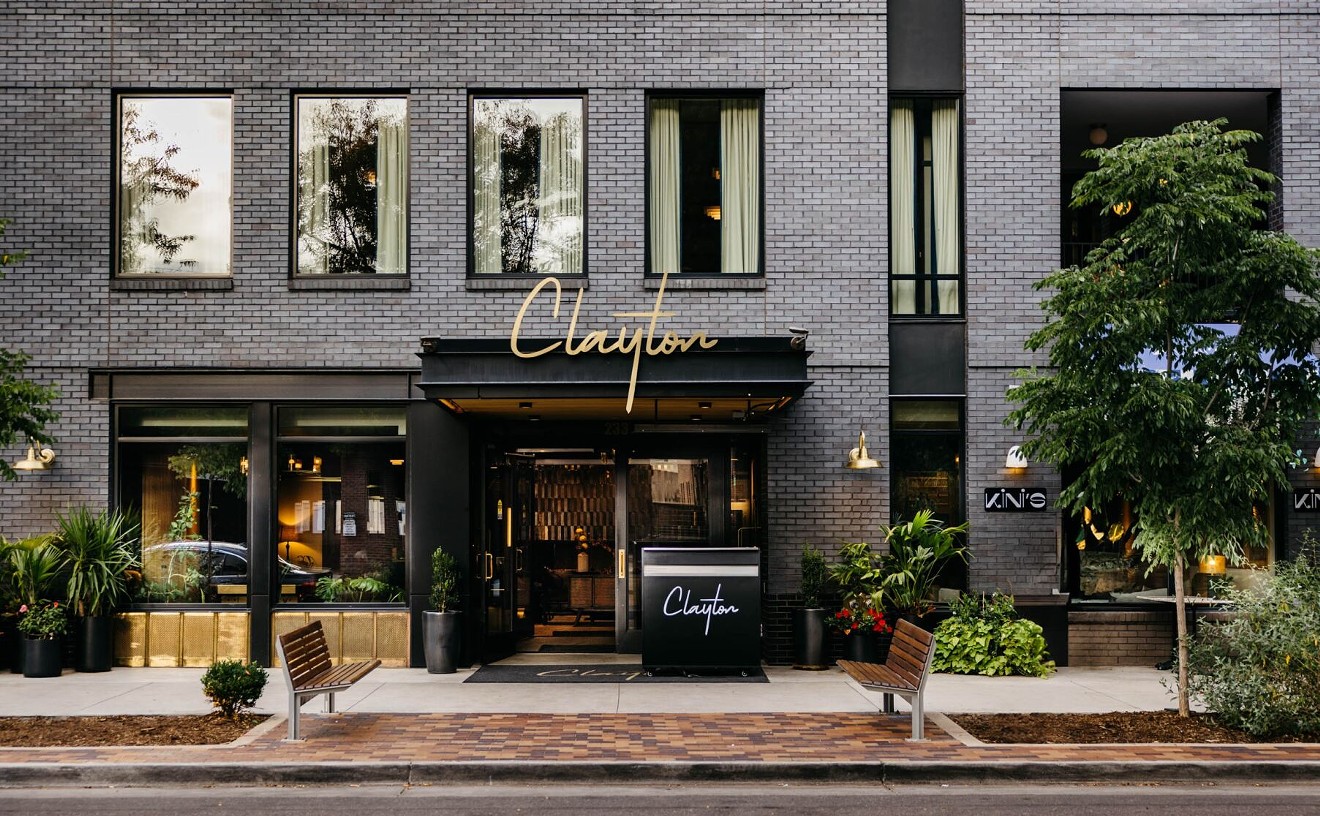Nonprofit U.S. Green Building Council developed the LEED (Leadership in Energy and Environmental Design) certification program in 1998 to promote sustainable building practices, improve energy efficiency and create healthier living and working environments. There are four levels: Certified, Silver, Gold and Platinum
It’s incredibly hard to achieve Platinum status. To date, only 1,500 U.S. projects have achieved that level of certification, according to Deisy Verdinez, spokesperson for the U.S. Green Building Council. It’s even harder for a distillery: Aspen Vodka is now only one of three LEED certified distilleries in the U.S. and the only one to achieve Platinum.
But LEEDv4 Platinum wasn’t enough for Aspen Vodka founder Matthew Patel. He raised the stakes by pushing the team to also pursue a Living Building Challenge (LBC) certification, which was designed to be the most rigorous green building certification in the world, ensuring that projects that achieve this certification are at the absolute forefront of sustainable design. Unlike LEEDv4, which certifies based on projected outcomes, Living Building Challenge requires twelve consecutive months of actual performance. Currently there are only 34 Living Building Challenge certified buildings in the world.
“I was challenged to be a steward for our environment for the current and future visitors to the valley and establish a manufacturing facility to produce our vodka,” explains Patel. “This goal informed all of our design decisions, and we challenged ourselves to build the facility to the highest environmental standards.”
Here’s a taste of what the company did:
100 percent of the water used is returned to the Roaring Fork River cleaner than before
Alcohol production requires a substantial water input; the process of mashing, fermentation, distillation and cooling produces wastewater that often contains pollutants that can harm aquatic ecosystems if not property treated. Both LEED and Living Building Challenge emphasize water efficiency, with the latter requiring a water balance, promoting a closed-loop system where all water use is sourced and treated on site.“The campus has no municipal water source and requires no municipal water treatment,” explains Luc Bamberger, project manager and AIA, LEED Green Associate at AndersonMasonDale Architects. To treat the wastewater themselves, Aspen Vodka partnered with Aquacycl's BioElectrochemical Treatment Technology (BETT), which uses proprietary microbes to break down wastewater, turning it into clean, drinkable water as well as usable electricity.
Then there’s the water that goes into the bottle; vodka is 60 percent water, after all. Aspen Vodka uses water from the Roaring Fork River, which naturally “filters through ancient crystalline rocks into a pure alkaline aquifer,” according to its website. Then it “undergoes a continuous distillation process via specialized rectification columns that allow for desired purity and proof. ... The vodka is then finished through silver filtration, paying homage to Aspen’s historic silver mining era,” Patel says. He attributes Aspen Vodka’s crisp, fresh, mineral-y taste to this process.
Cleaned wastewater will irrigate regenerative farms on its campus
The treated wastewater “will provide the option for nutrient-rich, irrigation-quality water that will be reused for agriculture on the campus, which features a farm that provides local sourcing for culinary partners in nearby Aspen, along with guests at the facility,” notes Lauren McNeill, associate principal for Group14 Engineering.Aspen Vodka has partnered with the Aspen Center for Environmental Studies (ACES) to host a pilot program of “a new extension to the ACES Agriculture Apprentice Program, a hands-on learning and academic program that is geared toward those pursuing agriculture as a career,” McNeill says. The on-campus farm “will provide an opportunity for interested graduates to work directly with Aspen Vodka Distillery to operate a regenerative farm independently.”
Trucking in sustainable soil to revitalize the land
The campus actually sits on a rehabilitated former lumber yard. One of the key principles of LEED and Living Building Challenge is to only develop on previously developed land. The construction team salvaged materials from the dilapidated structures to reuse for the build. The remainder of the material consists of lightweight, prefabricated wood panels, which take less energy to produce and reduce waste, as the panels are made to exact specifications in a factory setting.In addition, Aspen Vodka trucked in nutrient-rich soil from ACES’ Hallam Lake Nature Preserve project to lay the bed for the regenerative farm.
Result: Cutting carbon emissions by 26 percent
Through a combination of solar and battery storage, the Aspen Vodka campus actually produces 5 percent more energy than it consumes.But all of those efforts are meaningless if they don't result in a reduction of carbon emissions. In a report conducted by Group14 Engineering, it calculated that over sixty years, Aspen Vodka will produce 26 percent less carbon emissions than an average building.
It also estimates a 10 to 22 percent reduction in environmental impacts like acid rain and water pollution from the use the BETT technology, the use of renewable energy, selecting non-toxic building materials, and recycling and reusing materials during construction.
Only a month after officially opening its new campus, Vodka Aspen was granted the coveted LEEDv4 Platinum certification, with full intentions to submit its application for the Living Building Challenge certification after it has a full twelve months of performance data.
“To pursue these certifications, it takes a sincere commitment from the company,” notes Patel. Although Aspen Vodka did not disclose cost estimates to achieve these levels of sustainability, the price tag must be substantial.
“We are hoping Aspen Vodka Distillery inspires greater awareness and others to pursue any of the multitude of smaller tasks that all contribute to a better environment," Patel concludes.












